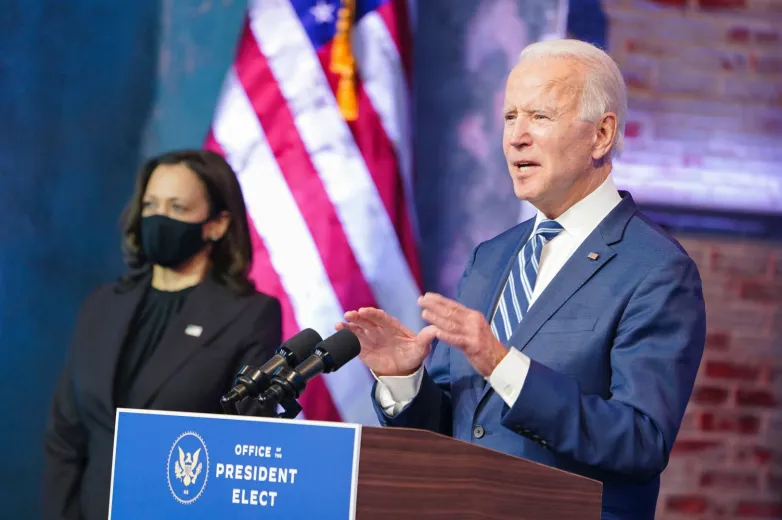United States solar and also wind velocity 'not nearly enough' to satisfy Biden's environment targets
- The United States' fleet of solar and wind generation capacity is readied to virtually triple over the next decade, but even this is not nearly enough to satisfy Head of state Biden's enthusiastic decarbonisation targets.

That's according to a new report from market expert BloombergNEF, which claims that the United States' renewables market's present development trajectory "will not be enough" to decarbonise the nation's power sector by 2035.
This is despite the expert's forecast that 287GW of solar as well as 115GW of wind ability will certainly be added to the US' grid over the next ten years, with 25GW of solar tipped for "record growth" over the next 4 years.
" If the United States is to achieve a carbon cost-free grid by 2035 then it would need to at least add around 70GW of wind as well as solar a year from 2025 onwards," stated Tom Rowland Rees, head of North America study at BNEF. The existing projection, he stated, sees simply 43GW being included yearly each year after 2025.
Biden's progress up until now
The report comes as Biden has brought in a raft of new actions this year in a bid to advance the nation's sustainable power ability as well as fast-track the transition far from fossil fuels. The Head of state set a target to get to carbon-free power generation by 2035, as well as invested his very first weeks in office signing executive orders made to urge federal firms to embrace low-carbon electrical energy as well as electrical automobiles, and also curtail the implementation of oil and gas power facilities. Last week, he revealed a US$ 2 trillion American Jobs Strategy that included a number of monetary benefits for solar as well as storage space programmers, such as 10-year extensions to existing investment tax credit reports for both clean power generation and also energy storage, and also incentives to develop at the very least 20GW of high voltage power lines to upgrade the grid.
The Department of Energy likewise revealed a US$ 128 million r & d financing plan last month that it hopes will certainly bring the cost of generating solar power down by 60% by the end of the years. What's more, the United States Department of Treasury exposed this week that the new renewable tax rewards would certainly be paid for by junking the aids oil as well as gas firms currently benefit from.
The outlook
While solar was tipped for considerable growth, BNEF's report kept in mind that onshore wind gets on track to be "the big champion" of Biden's clean energy change plans, with the sector seeing its very own financial investment tax credit ratings and the White House showing up "devoted to fixing historical traffic jams to deployment".
Also without the added increase from the American Jobs Strategy, wind and solar instalments would grow by 287GW and also 115GW specifically, stated Tara Narayanan, BNEF's lead solar analyst, while solar energy "particularly" has actually been tipped for "record development" until 2025.
According to BNEF's 1H 2021 United States Renewable Resource Market Outlook, Biden's tax credit history extensions will certainly bring about "5 years of record growth" in large solar capacity additions at a rate of 20GW annually. Customer-sited solar will additionally "maintain its speed", the group claimed, with 8GW a year coming online till 2025. The golden state is readied to lead the way in solar capacity additions, with over a 3rd of brand-new setups being integrated in the state.
But Rees stated there is "still a substantial void" between the Biden Administration's targets as well as what the expert believes can be achieved in the current climate.
Political hurdles
Rees highlighted the brief mention of a so-called 'clean energy standard' when Biden unveiled the US$ 2 trillion infrastructure investment strategy. The standard, planned to cut electrical energy bills as well as carbon emissions associating with power generation, is readied to be pursued through legislature instead of executive authority, when Rees warned could lead to a delay in Congress.
If elected with, Rees said, a clean energy standard might have the ability to "shut the void" between Biden's decarbonisation targets as well as what the renewables sector can reasonably achieve, yet such a policy "is likely to prove controversial politically" and also might face lawful arguments from states and energies reliant on fossil-fuel power generation.
"Tax credits definitely assist the renewables industry expand, but a Clean Energy Standard is capital on which the battle to totally decarbonize the United States power field could be won or shed," he said.
Also read
- Zelestra Clinches $282m Financing for 220-MW Aurora Solar-Storage Hybrid Project
- Enfinity Boosts US Credit Facility to $245m for Solar Growth
- Ellomay Offloads Nearly Half of Italian Solar Portfolio to Clal
- Valeco Secures Solar Power Deal with French SMEs
- Eurowind Energy Commits EUR 175M to Romanian Solar Park
